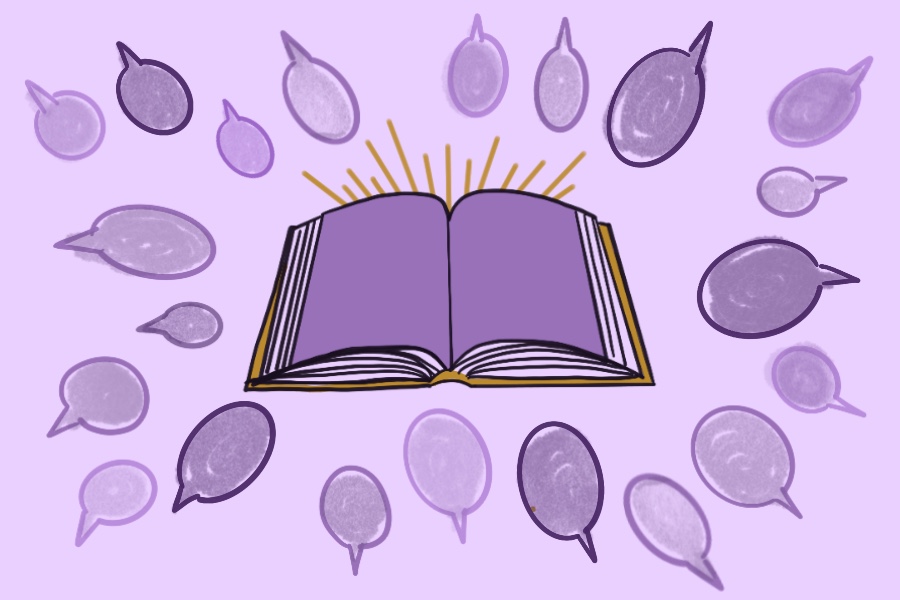‘Brown and gay in the USA’: Author Anthony Ocampo talks intersectionality as a Filipino and queer scholar
Anthony Ocampo spoke Tuesday about his book, “Brown and Gay in LA: The Lives of Immigrant Sons.”
May 2, 2023
California State Polytechnic University sociology professor and author Anthony Ocampo spoke Tuesday about what it means to be “brown and gay in the USA”. He addressed attendees from Northwestern, Northeastern Illinois University and Oakton College as part of programming for Asian American and Pacific Islander Heritage Month.
The program was a partnership between Multicultural Student Affairs at Northwestern University, the Center for Organizing Minority Program to Advance Student Success Program at Oakton College, and the Office of Equity, Diversity and Inclusion at Northeastern Illinois University.
A son of Filipino immigrants, Ocampo said his personal experiences have influenced his sociological research.
“I don’t really believe that objectivity exists,” Ocampo said. “I also don’t believe this idea that you have to remove your humanity from the process of being a sociologist.”
For his book “Brown and Gay in LA: The Lives of Immigrant Sons,” Ocampo interviewed queer second-generation immigrant men from America about their experiences given a lack of representation in the media and familial pressures, bringing in details from his own life.
During the talk, Ocampo emphasized intersectionality, a theory Black feminist thinkers originated that emphasizes uniting power struggles, he said. For the men in his book, race and queerness intersect in their everyday lives, he said.
“A lot of people think of (intersectionality) as, ‘Oh, it’s having two identities,’” Ocampo said. “But it’s actually much more than that. It’s thinking about how people live at the intersection of systems of power systems of inequality that affect their lives in very, very unique ways.”
Ocampo described strategies queer sons of immigrants like him use to cope with familial pressure to conform to heteronormativity. He discussed “academic covering,” a phenomena in which some queer youth excel in school to avoid disappointing their families.
Dear Aunaetitrakul, a senior program manager at Oakton College and one of the co-hosts of the event, said she engaged in academic covering during college by attempting to make her queer identity secondary to her academic one. She said she didn’t have a term to describe the experience before she heard Ocampo speak Tuesday.
Like Aunaetitrakul, second-year biology Ph.D. student Delfin Buyco, who attended the event, said he related to Ocampo’s discussion on academic covering, but added that his motivation is now more intrinsic.
“Through that (experience), I have sort of discovered my love for science,” Buyco said. “This is something that, independent of all that, I actually want to do.”
Now, Buyco is a member of NU’s Diversity in Biological Sciences Council, a coalition that aims to provide a network for marginalized students studying biology.
Buyco said the crowd at the event, which spanned multiple universities, made him feel reassured that there are other people like him who are involved in academia.
“Having an event like this shows that we definitely exist,” Buyco said. “We are your colleagues and professors and students at the same university as you.”
Ocampo said during the talk that rising anti-Asian violence in America makes it especially important to incorporate AAPI visibility at every level of education.
Aunaetitrakul added that conversations like these need to continue throughout the year.
“We should get more airtime and space for us to share our experience, but it doesn’t have to be just AAPI Heritage Month,” she said. “I like to think that every month is POC month.”
Email: samanthapowers2026@u.northwestern.edu
Twitter: @sqpowers04
Related Stories:
— The Yappie provides political news for AAPI communities
— Students celebrate AAPI heritage in Chinese class through projects



